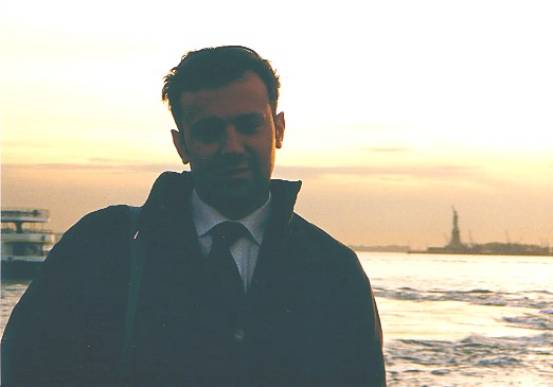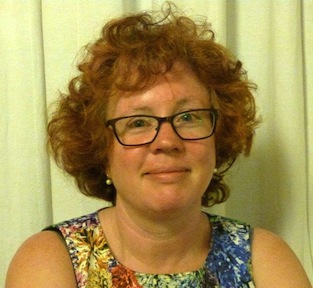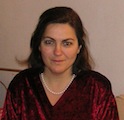Studiare
In questa sezione è possibile reperire le informazioni riguardanti l'organizzazione pratica del corso, lo svolgimento delle attività didattiche, le opportunità formative e i contatti utili durante tutto il percorso di studi, fino al conseguimento del titolo finale.
Calendario accademico
Il calendario accademico riporta le scadenze, gli adempimenti e i periodi rilevanti per la componente studentesca, personale docente e personale dell'Università. Sono inoltre indicate le festività e le chiusure ufficiali dell'Ateneo.
L’anno accademico inizia il 1° ottobre e termina il 30 settembre dell'anno successivo.
Calendario didattico
Il calendario didattico indica i periodi di svolgimento delle attività formative, di sessioni d'esami, di laurea e di chiusura per le festività.
| Periodo | Dal | Al |
|---|---|---|
| Presentazione corsi di laurea | 1-ott-2012 | 1-ott-2012 |
| I semestre | 2-ott-2012 | 12-gen-2013 |
| II semestre | 25-feb-2013 | 31-mag-2013 |
| Sessione | Dal | Al |
|---|---|---|
| Sessione esami invernale | 14-gen-2013 | 23-feb-2013 |
| Sessione esami estiva | 3-giu-2013 | 27-lug-2013 |
| Sessione esami autunnale | 2-set-2013 | 30-set-2013 |
| Sessione | Dal | Al |
|---|---|---|
| Sessione lauree autunnale | 22-nov-2012 | 24-nov-2012 |
| Sessione lauree invernale | 25-mar-2013 | 27-mar-2013 |
| Sessione lauree estiva | 10-lug-2013 | 13-lug-2013 |
| Periodo | Dal | Al |
|---|---|---|
| Festa di Ognissanti | 1-nov-2012 | 1-nov-2012 |
| Festa dell'Immacolata Concezione | 8-dic-2012 | 8-dic-2012 |
| Vacanze di Natale | 24-dic-2012 | 6-gen-2013 |
| Vacanze di Pasqua | 29-mar-2013 | 2-apr-2013 |
| Festa della Liberazione | 25-apr-2013 | 25-apr-2013 |
| Festa del Lavoro | 1-mag-2013 | 1-mag-2013 |
| Festa del Santo Patrono di Verona - San Zeno | 21-mag-2013 | 21-mag-2013 |
| Festa della Repubblica | 2-giu-2013 | 2-giu-2013 |
Calendario esami
Gli appelli d'esame sono gestiti dalla Unità Operativa Segreteria Corsi di Studio Lingue e letterature straniere.
Per consultazione e iscrizione agli appelli d'esame visita il sistema ESSE3.
Per problemi inerenti allo smarrimento della password di accesso ai servizi on-line si prega di rivolgersi al supporto informatico della Scuola o al servizio recupero credenziali
Per dubbi o domande leggi le risposte alle domande più frequenti F.A.Q. Iscrizione Esami
Docenti
 birgit.alber@univr.it
birgit.alber@univr.it
Ambrosi Paola
 paola.ambrosi@univr.it
paola.ambrosi@univr.it
 +39 045 802 8466
+39 045 802 8466
 cecilia.grana@univr.it
cecilia.grana@univr.it

Ligas Pierluigi
 pierluigi.ligas@univr.it
pierluigi.ligas@univr.it
 +39 045 802 8408
+39 045 802 8408

Locher Elmar
 elmar.locher@univr.it
elmar.locher@univr.it
 +39 045802 8311
+39 045802 8311

Migliorati Lorenzo
 lorenzo.migliorati@univr.it
lorenzo.migliorati@univr.it
 045802 8135
045802 8135
 francesco.vecchiato@univr.it
francesco.vecchiato@univr.it

Zaccarello Michelangelo
 michelangelo.zaccarello@univr.it
michelangelo.zaccarello@univr.it
 +39 045 802 8330
+39 045 802 8330

Zanon Tobia
 tobia.zanon@univr.it
tobia.zanon@univr.it
Piano Didattico
Il piano didattico è l'elenco degli insegnamenti e delle altre attività formative che devono essere sostenute nel corso della propria carriera universitaria.
Selezionare il piano didattico in base all'anno accademico di iscrizione.
1° Anno
| Insegnamenti | Crediti | TAF | SSD |
|---|
Istituzioni di diritto commerciale
2° Anno Attivato nell'A.A. 2013/2014
| Insegnamenti | Crediti | TAF | SSD |
|---|
Geografia urbana, commerciale e dei trasporti
3° Anno Attivato nell'A.A. 2014/2015
| Insegnamenti | Crediti | TAF | SSD |
|---|
| Insegnamenti | Crediti | TAF | SSD |
|---|
Istituzioni di diritto commerciale
| Insegnamenti | Crediti | TAF | SSD |
|---|
Geografia urbana, commerciale e dei trasporti
| Insegnamenti | Crediti | TAF | SSD |
|---|
| Insegnamenti | Crediti | TAF | SSD |
|---|
Legenda | Tipo Attività Formativa (TAF)
TAF (Tipologia Attività Formativa) Tutti gli insegnamenti e le attività sono classificate in diversi tipi di attività formativa, indicati da una lettera.
Letteratura inglese I [Cognomi A-E] (2012/2013)
Codice insegnamento
4S00844
Docente
Coordinatore
Crediti
6
Lingua di erogazione
Italiano
Settore Scientifico Disciplinare (SSD)
L-LIN/10 - LETTERATURA INGLESE
Periodo
II semestre dal 25-feb-2013 al 31-mag-2013.
Obiettivi formativi
Il corso intende offrire una panoramica della Letteratura drammatica inglese fra Ottocento e Novecento, con particolare riferimento ad alcuni testi canonici, e parallelamente offrire strumenti di base di analisi critica dei testi.
Programma
Un secolo sulla scena: dal well-made play al teatro dell’assurdo e oltre.
Attraverso una selezione di drammi otto e novecenteschi, il corso si propone di offrire una panoramica della scena inglese dal secondo Ottocento al secondo Novecento. Il percorso partirà dal teatro di Oscar Wilde, dove, attraverso paradossi sofisticati, ci si fa beffe della borghesia tardo-vittoriana e delle strategie conversazionali del well-made play, per passare poi a George Bernard Shaw, che introduce la commedia di idee, pur senza innovarne l’impianto fondamentale. Si approderà quindi alla sperimentazione simbolista di William Butler Yeats, e si giungerà infine al secondo novecento con il dramma sociale Arnold Wesker e la drammaturgia di Samuel Beckett e Harold Pinter, che vede un deliberato abbandono di costrutti drammaturgici razionali e il rifiuto del linguaggio logico-consequenziale.
Avvertenze
Il programma si articola in tre parti, rubricate sotto la voce Bibliografia: 1. Testi primari, 2a. Letture critiche e 3. Manuali.
Agli studenti non frequentanti si richiede anche la lettura dei testi indicati in 2b.Letture critiche aggiuntive per studenti non frequentanti.
Ulteriori precisazioni bibliografiche e sul reperimento del materiale saranno fornite all’inizio delle lezioni.
Lingua: il corso sarà tenuto in italiano, con lettura dei testi in inglese.
BIBLIOGRAFIA
1. Testi (in qualsiasi edizione inglese)
- O. Wilde, The Importance of Being Earnest
- G.B. Shaw, Mrs Warren’s Profession
- W.B. Yeats, At the Hawk’s Well
- S. Beckett, Krapp’s Last Tape
- A. Wesker, The Kitchen
- H. Pinter, Old Times
2a. Letture critiche
- P. Raby, “Wilde’s comedies of Society”, in The Cambridge Companion to Oscar Wilde, ed. by P. Raby, CUP, 1997, pp. 143-160.
- K. Powell, “New Women, new plays, and Shaw in the 1890s”, in The Cambridge Companion to George Bernard Shaw, ed. by C. Innes, CUP, pp. 76-100.
- B. O’Donoghue, “Yeats and the drama”, in The Cambridge Companion to W.B. Yeats, CUP, 2006, pp.101-114.
- P. Lawley, “Stages of identity: from Krapp’s Last Tape to Play”, in The Cambridge Companion to Samuel Beckett, ed. by J. Pilling, CUP, 1994, pp. 88-105.
- G. Leeming and S. Trussler, The Plays of Arnold Wesker. An Assessment, Victor Gollancz, 1971, pp. 25-42.
- A. Rayner, “Harold Pinter: Narrative and Presence”, Theatre Journal, Vol. 40, No. 4 (Dec., 1988), pp. 482-497.
2b. Letture critiche aggiuntive per studenti non frequentanti
- R. Jackson, “The Importance of Being Earnest”, in The Cambridge Companion to Oscar Wilde, ed. by P. Raby, CUP, 1997, pp. 161-177.
- D.J. Gordon, “Shavian comedy and the shadow of Wilde” in The Cambridge Companion to George Bernard Shaw, ed. by C. Innes, CUP, pp. 124-143.
- S. Bigliazzi, “Verso un teatro di danza: i Four Plays for Dancers di W.B. Yeats”, in Figure e intersezioni: tra danza e letteratura, a c. di L. Colombo e S. Genetti, Fiorini, 2010, pp. 301-321.
- S. Debevec Henning, “Narrative and Textual Doubles in the Works of Samuel Beckett”, SubStance, Vol. 9, No. 4, Issue 29 (1980), pp. 97-104.
- R. Wicher, Understanding Arnold Wesker, University of South Carolina Press, 1991, pp. 1-31.
- R. Knowles, “Pinter and twentieth-century drama”, in The Cambridge Companion to Harold Pinter, ed. by P. Raby, CUP, 2001, pp. 73-86.
3. Manuali
Il manuale di riferimento per il contesto storico-letterario (1830-2000, dall’età vittoriana ai giorni nostri) andrà scelto tra:
- A. Sanders, The Short Oxford History of English Literature, OUP, 2004.
- P. Bertinetti (a c. di), Storia della letteratura inglese, Einaudi, 2000, vol. II.
Modalità d'esame
L’esame si svolgerà oralmente in italiano e in inglese.
Materiale e documenti
-
 Nuovo calendario
(pdf, it, 50 KB, 08/03/13)
Nuovo calendario
(pdf, it, 50 KB, 08/03/13)
-
 Per accedere alla banca dati JStor
(pdf, it, 2479 KB, 28/02/13)
Per accedere alla banca dati JStor
(pdf, it, 2479 KB, 28/02/13)
-
 Yeats
(pdf, it, 16339 KB, 19/04/13)
Yeats
(pdf, it, 16339 KB, 19/04/13)
Tipologia di Attività formativa D e F
Per scoprire tutte le attività didattiche accreditate dal Collegio didattico clicca qui
Prospettive
Avvisi degli insegnamenti e del corso di studio
Per la comunità studentesca
Se sei già iscritta/o a un corso di studio, puoi consultare tutti gli avvisi relativi al tuo corso di studi nella tua area riservata MyUnivr.
In questo portale potrai visualizzare informazioni, risorse e servizi utili che riguardano la tua carriera universitaria (libretto online, gestione della carriera Esse3, corsi e-learning, email istituzionale, modulistica di segreteria, procedure amministrative, ecc.).
Entra in MyUnivr con le tue credenziali GIA: solo così potrai ricevere notifica di tutti gli avvisi dei tuoi docenti e della tua segreteria via mail e a breve anche tramite l'app Univr.
Area riservata studenti
Gestione carriere
Assegnazione tutore
Attività accreditate D/F
Calendario didattico dettagliato
Cambio lingua curriculare
Competenze informatiche
Competenze linguistiche (prima e seconda lingua)
Competenze linguistiche in triennale (terza lingua CFU F)
Compilazione del piano didattico
Corso di Lingua portoghese
Erasmus+ e altre esperienze all'estero
Esercitazioni Linguistiche CLA
Presentazione dei corsi di studio e Open day
Prova finale
La prova finale, a cui vengono attribuiti 6 CFU consiste nella preparazione e discussione di un elaborato scritto su materia di uno degli insegnamenti in cui siano stati acquisiti almeno 6 CFU.
La discussione dell'elaborato scritto avviene in presenza di una Commissione Istruttoria composta da due docenti dell'Ateneo che si riunisce nei giorni precedenti la proclamazione e che propone alla Commissione di Laurea (composta da almeno tre docenti) una valutazione. Alla prova finale potranno essere attribuiti non più di 5 punti su 110. L'attribuzione della lode avviene o su proposta del relatore, se l'elaborato è ottimo e la media dei voti conseguiti negli esami dallo Studente raggiunge almeno 110 punti, o in maniera automatica se la media raggiunge almeno 113 punti.
Il voto di laurea è formato da:
a) la media aritmetica dei voti conseguiti negli esami, rapportata a 110,
b) la valutazione dell'elaborato finale,
c) punti supplementari di incentivazione:
- un massimo di 2 punti per le lodi (1 punto per due lodi, 2 punti per più lodi).
- 2 punti per la partecipazione al Programma Erasmus o assimilato, a condizione che lo studente: abbia acquisito almeno 12 CFU per un semestre di mobilità nel corso del ciclo di studi (24 CFU per due semestri di mobilità) e consegua il titolo finale entro la durata normale del corso di studi.
- 1 punto per la partecipazione al Programma Erasmus o assimilato, a condizione che lo studente: abbia acquisito almeno 12 CFU per un semestre di mobilità nel corso del ciclo di studi (24 CFU per due semestri di mobilità) e consegua il titolo finale anche oltre la durata normale del corso di studi.
- Lo studente vincitore del bando del Ministero dell’Università per assistente di lingua italiana all’estero o di borsa Comenius presso scuole di 1° e 2° grado dell’Unione Europea otterrà un punteggio supplementare, che sarà aggiunto alla media finale del voto di laurea: 1 punto, per una esperienza di assistentato fino a 6 mesi; 2 punti, per una esperienza di assistentato superiore a 6 mesi.
Non possono essere attribuiti punti di incentivazione per qualsiasi esperienza all’estero svolta dallo studente su iniziativa privata, anche se riconosciuta come equipollente dal Dipartimento/Collegio Didattico.
- 2 punti per la conclusione degli studi in corso (solo per gli studenti di prima immatricolazione, senza il riconoscimento della carriera pregressa o sospensione di carriera).
Adempimenti amministrativi, scadenze domanda di laurea, calendari delle discussioni elaborato finale e proclamazioni di laurea al seguente link Sessioni di laurea
Elenco delle proposte di tesi e stage
| Stage | Area di ricerca |
|---|---|
| PROGETTO MAMBRINO Stage per bibliografia | Argomenti vari |
Saperi minimi
Stage e tirocini
Nel piano didattico della laurea triennale in Lingue per il turismo e il commercio internazionale (L12) è previsto un periodo di stage obbligatorio (CFU 6) in organizzazioni imprenditoriali.
Le attività di stage sono finalizzate a far acquisire allo studente una conoscenza diretta in settori di particolare interesse per l’inserimento nel mondo del lavoro e per l’acquisizione di abilità professionali specifiche.
Le attività di stage sono svolte sotto la diretta responsabilità di un singolo docente presso studi professionali, enti della pubblica amministrazione, aziende accreditate dall’Ateneo veronese.
I crediti maturati in seguito ad attività di stage saranno attribuiti secondo quanto disposto nel dettaglio dal “Regolamento d’Ateneo per il riconoscimento dei crediti maturati negli stage universitari” vigente.
- Tutte le informazioni in merito agli stage per futuri studenti sono disponibili alla pagina Stage e tirocini.
- Tutte le informazioni in merito agli stage per studenti iscritti sono pubblicate in MyUnivr - come fare per - stage e tirocini.
- Tutte le informazioni in merito agli stage per le aziende sono disponili alla pagina Stage e tirocini per azienze.
Ulteriori informazioni al seguente link https://www.univr.it/it/i-nostri-servizi/gestione-carriere-studenti-lingue-e-letterature-straniere/stage-e-tirocini-lingue-e-letterature-straniere










































